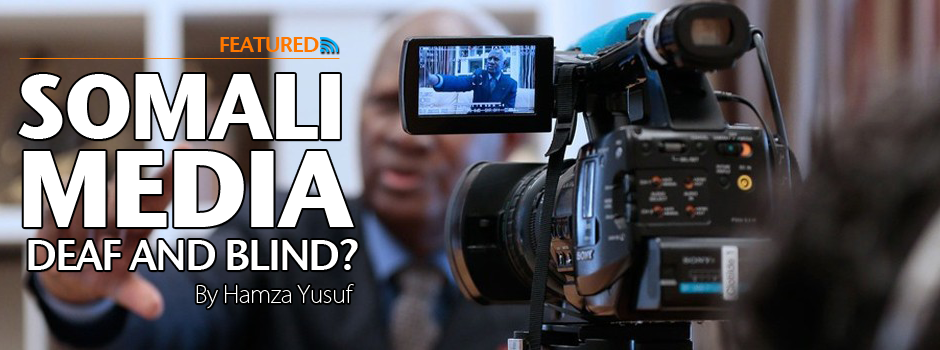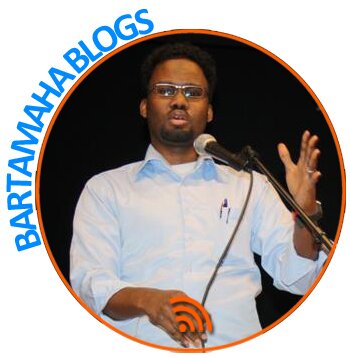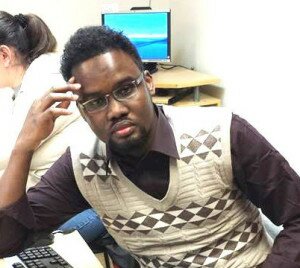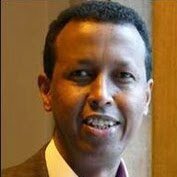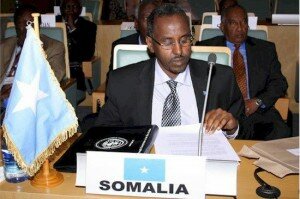How to reconcile the virtues of Unity with the inevitable vices of Self-Interest
By Abdulkadir Nur Salah (Donyale)Â October 15, 2009
Ever since the collapse of the Somali state, segments of our society have been exposed to compete over ideologies and scarce resources and each group sought to impose their form of rule and methodology on our people. Some were willing to compromise with their perceived clan rivalries; others were determined to rebel against every ideology that conflicted with their own clan interest. This article will tap into the virtues of unity from varying sources of knowledge and precepts that date back to the period of Enlightenment in Islam and of modern history. And some of the strategies we can implement to realize social and political unity.
One of my favorite quotes of unity is by a French pilot and a writer named Antoine de Saint-Exupery, he said, “One man may hit the mark, another blunder; but heed not these distinctions. Only from the alliance of the one, working with and through the other, are great things born.†If you are oblivious of what role unity plays in the vexing realities of nature, just for a second, try to observe an ecosystem and how each organism, plant, sun, and the wind all interact with one another for their general welfare. Thus Animals/humans inhale oxygen that is released by Plants, while simultaneously the plant uses a carbon dioxide exhaled by animals and the sunlight as a source of energy.
As we already know unity is an integral component of the creed of Islam. The Prophet (peace and blessings be upon him) said, “None of you will have faith till he wishes for his (Muslim) brother what he likes for himself.” (Sahih Al-Bukhari Volume 1, Book 2, Number 12).
Let us all further ask our-self a vital question which is when can we realize unity? Allah, the most knowledgeable, says in the Quran “And hold fast to the rope of Allah, and do not be divided amongst yourselves” (3:103). Unity can only be realized when each individual apprehends he/she is part of an ecosystem and that they must serve the common interest of all the components.
Hence, unity is not to compromise or to accommodate, rather it is the ability to collaborate with individuals who hold different political, economical, or social views in life. It is the Sunan (ways) of Allah to create a universe that is enriched with diversity. Similarly, we will deviate from the norm, if we expected everyone to have the same paradigm. Can we imagine living in a world where everyone dressed the same way, spoke the same, and perceived everything from one side.
 Another vital question is what strategies do we need to implement to reap the fruits of unity?
Whenever we talk about matters concerning our general welfare, it is incumbent upon us that we refer to the sources of all knowledge, including the Quran and Sunnah. Allah states in the Quran “if you disagree about anything, refer it back to Allah and his messenger if you believe in Allah and the last day. This is best and most suitable for a final determination.â€[Surah al-Nisa: 59].
 One of the biggest elements of unity is the Institution of Justice. Thus, if we can establish a system that dispenses justice to all the members of a society, then we are not too far from reaching unity. Many prominent scholars argue that Allah does not destroy a community, nation, or a society as long as they are doing justice. Allah says in surrah huud “In truth thy lord destroyed not the townships tyrannously while their folk were doing right†(11:117). The implications of Justice do not only concern individuals who hold high offices, rather it is obligatory upon every member of the society to uphold and defend the virtues of justice.
 No one defines justice better than Aristotle, who believed justice was a character trait, not a state of being. He continues his definition of justice by explaining the opposite of justice, which is “the injustice personâ€. The unjust person is someone who is over occupied by greed or self-indulgence. On the contrary the scope of justice is defined by everything that is good with respect to one’s neighbors/ fellow citizens.
  The other element that parallels with justice is unified leadership. Unified leadership plays a major role in determining success or failure towards the formation of a stable and unified society. The prophet (peace and blessings be upon him) said in a hadith “if three persons set out on a journey, they should appoint one of them their leader.†Many contemporary scholars argue that even the formation of poor leadership is better than anarchy. One of the most prominent Muslim theologist ibnu Taimiyah (rahimahullah) said, “sixty years of an unjust ruler is better than one night without a Sultanâ€. He continues his argument and says, “it should be noted that to regulate the affairs of people is one of the most important requirements of the religion.â€
 The vagueness of the term “unity†signals as one of the most difficult values to achieve and its meaning is relative in every given society.
 Unity is achieved through an inclusive effort that requires the participation of all the members of our society. Hence, if society was like a cell, the nucleus of the society would constitute its unity and the shield, which is the cell membrane, would constitute Justice. To obtain unity, we must learn to collaborate our interest with the general interest of the society. However, if the two afflict, we must take sides with the one that produces the greatest Output which is the general interest of all.
 Several weeks ago, I was reciting a children’s story by an author named Indrajeet Kaushik to my nephew, which really stuck in my head. The story goes “there were a variety of sweets in a shop. One day, the sweets argued among themselves as to who was the greatest of all. Each of them claimed to be the greatest. One claimed to be the prettiest while the other claimed to be having the best of taste. Soon they started quarrelling among themselves. The quarrel gave rise to a fight. As a result, all the sweets broke. One sweet lost its hands while the other lost its legsâ€. Although the author wanted to teach kids the essence of unity, sometimes, it is important to remind adults the nature of unity and its implication in civil society.
By Abdulkadir Nur Salah “Donyale”
Comments
comments
 Calendar
Calendar





